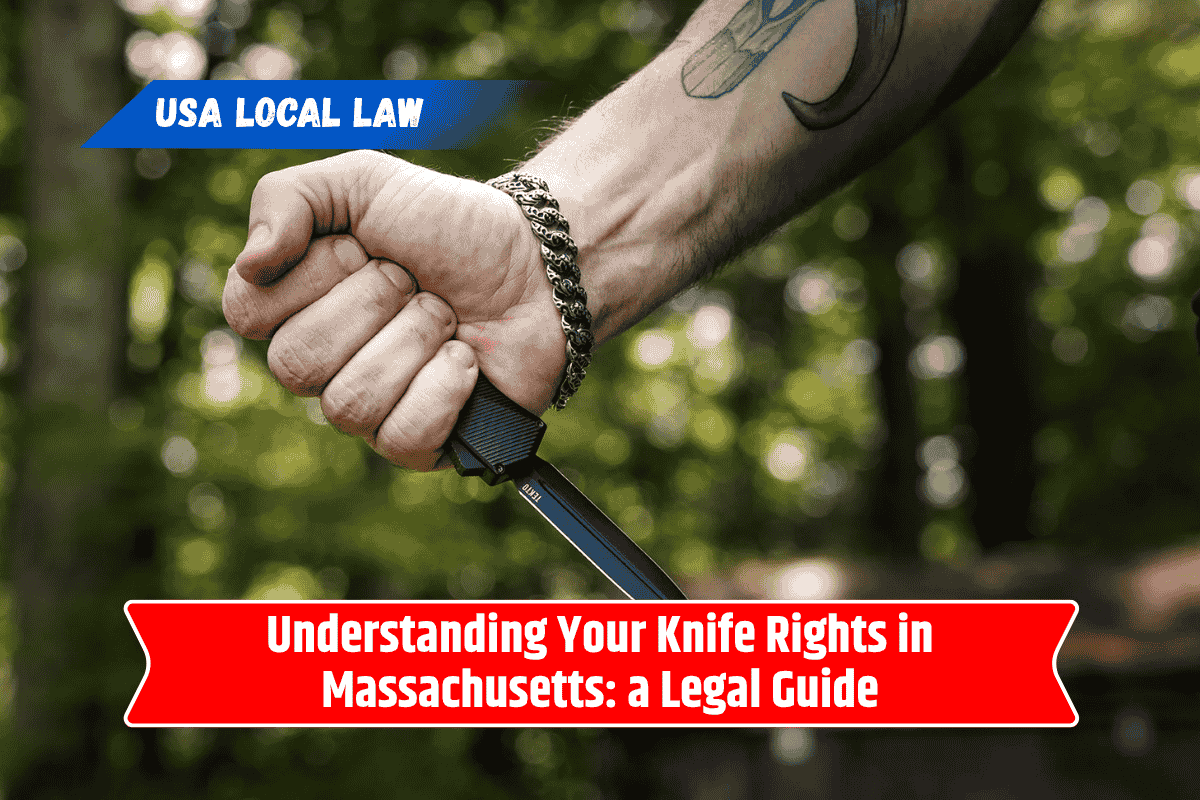Knives are useful tools that many people carry for different reasons – whether for cooking, work, camping, or self-protection. However, carrying a knife in public can also land you in trouble if you don’t understand the law.
In the state of Massachusetts, there are specific rules about what types of knives are allowed, who can carry them, and where they can be carried. This guide breaks down Massachusetts knife laws in simple English so you can stay safe and avoid legal trouble.
Are Knives Legal in Massachusetts?
Yes, knives are legal in Massachusetts, but not all types. The law allows people to own and carry many types of knives, but it does place limits on certain kinds, especially those that are seen as dangerous or could be used as weapons.
The legal use of a knife depends on why you’re carrying it, where you are, and what kind of knife it is.
Types of Knives You Can Carry
In general, you are allowed to carry basic pocket knives and folding knives if you have a good reason, like using them for work or outdoor activities.
The following types of knives are usually allowed:
Pocket knives
Folding knives
Utility knives (box cutters)
Hunting and fishing knives (for outdoor use)
However, the blade should not be too large or designed for harm. If a knife looks dangerous or is meant to be a weapon, the law may not allow it, even if it’s a pocket knife.
Knives That Are Banned or Restricted
Massachusetts law bans certain types of knives, no matter why or where you’re carrying them. These include:
Switchblades (automatic opening knives)
Ballistic knives (blades that shoot out)
Double-edged daggers
Dirks and stilettos
Knives disguised as other objects (like pens or belt buckles)
Carrying these knives in public places can lead to fines, arrest, or even jail time. Police consider the design and intention of the knife when deciding if it’s legal.
Can You Carry a Knife for Self-Defense?
This is a tricky area. While you can carry a legal knife, Massachusetts does not allow knives to be carried purely for self-defense. If police stop you and you say the knife is for protection, they may consider it a weapon – and that can get you into legal trouble.
It’s safer to say you carry it for work or practical use, like cutting boxes or for outdoor use, if that’s true.
Places Where Carrying a Knife is Illegal
Even if your knife is legal, you cannot carry it in certain places, including:
Schools or school grounds (strictly banned)
Government buildings
Courtrooms
Airports (TSA rules apply)
Bringing a knife to these places, even by accident, can lead to serious charges. Always check your pockets or bag before entering these areas.
Who Can Legally Carry a Knife?
In Massachusetts, there is no specific age mentioned in the law about knife carrying. However, minors (under 18) can face more scrutiny if found with a knife, especially if it’s considered dangerous. Parents and guardians should guide their children on what is allowed and why.
What Happens If You Break the Knife Law?
If you are caught carrying a banned knife or using any knife in a threatening way, you could be charged with a crime. Penalties may include:
Fines
Confiscation of the knife
Jail time (especially if it’s your second offense or involves violence)
The police or judge will look at the type of knife, why you had it, and how you were using it to decide on punishment.
Tips to Stay on the Right Side of the Law
Always use knives responsibly and carry them only when needed. Avoid flashy or combat-style knives in public. If you’re unsure whether a knife is legal, it’s best to leave it at home or ask a legal expert.
Also, remember: Just because a knife is sold in a store doesn’t mean it’s legal to carry in public.
Understanding knife laws in Massachusetts is important if you own or carry any kind of blade. While many knives are allowed, some are banned completely, and where and why you carry your knife matters.
Always stay informed and use knives safely and legally. Knowing your rights – and the limits – can help you avoid unnecessary trouble and keep yourself and others safe.
